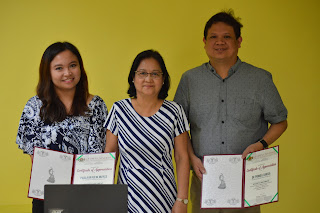by Ma. Rosette San Buenaventura
Research Conversations featured the UPOU Connected Flagship Program last 8 September 2017 with Assistant Professor Al-Francis D. Librero as the resource person.
Asst. Prof. Librero started off the talk with an overview of the program’s main goals, which are: 1) to engage in public discussion of critical social issues, 2) ro participate in social mobilization, and 3) ro disseminate research results and knowledge products. Accordingly, the program is a repacking and continuation of the initial efforts of the Multimedia Center, OASIS, ICTDO, and Faculty Offices on public discussion, social mobilization, and knowledge dissemination. Its performance indicators are the availability of 1) multiple platforms for discussion of issues and knowledge dissemination and 2) network/s of community media and information service providers.
Asst. Prof. Librero then discussed each of the program’s components and the ongoing efforts for each of these components. Accordingly, For the UPOU Networks website, the ongoing activities are: 1) organizing the materials in UPOU Networks, 2) providing links from UPOU website to all other Web-based assets of the university, 3) creating a mobile app to access UPOU Networks, 4) establishing a content management system, and 5) consolidating microsites. For the establishment of a low-powered FM Station, the target audience has been identified as those who are elderly and those who lack access to other sources of knowledge. It was also noted that there still is much to be done in the development of materials for the FM station and matters concerning the management of the station. Meanwhile, for the use of social media platforms, it was emphasized that there is a need for critical discourse on social issues and dissemination of research and knowledge products. To this day, UPOU has accounts on Facebook (UPOpenUniversity), Twitter (upopenu), Instagram (UPOpenU), and Youtube (UPOU Networks).
Existing issues on the program, as well as possible researchable areas, are as following: centralization/decentralization of content development, streamlining and consolidation of content and modes of delivery, and evolution of design and production values.
watch the recording of the conversation at: https://www.youtube.com/watch?v=C6fEsbrZobw&index=18&list=PLiqeNUxu5x2HMuySXKnMcHzgTBeIovfH7











